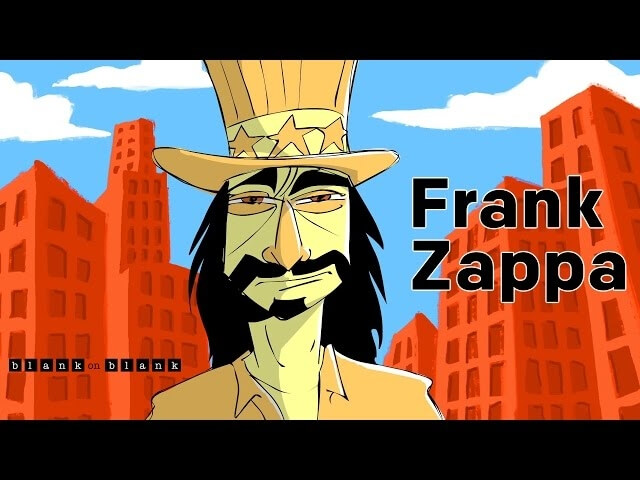An animated Frank Zappa talks about fads, fans, and women’s lib in 1971

By 1971, 31-year-old Frank Zappa was firmly established as one of the most outspoken, experimental, and outlandish musicians in rock. He could be a surly, contemptuous son of a bitch and a difficult interview subject to boot. Hero or heel, Zappa was thoroughly himself in a June 1971 chat with Howard Smith, a filmmaker and a journalist for The Village Voice. Portions of that discussion have now been animated for an episode of PBS Digital’s ongoing web series Blank On Blank. This is the same series that previously offered an animated Tom Waits. Here, Smith and Zappa talk about political consciousness, the women’s liberation movement, and the mentality of rock fans. Not surprisingly, Zappa is pretty dismissive about all of these things. He bad-mouths New York a bit, too, comparing it unfavorably to Los Angeles. “Ain’t no hustle where I live,” Zappa says, referring to his tree-lined home in Laurel Canyon. “I don’t have to shuffle around the street and walk over people who have pissed all over themselves.”
On the topic of the feminist movement, Zappa describes it as just another fleeting trend, like Grand Funk Railroad. “It keeps ’em off the street,” he allows. A woman’s place is not necessarily the home, Zappa opines, but it’s not in his band either. “I just don’t think it’s practical,” he says. “Not for what we do.” He clarifies: “I don’t think there’s a girl around who would fit in with what we do.”

 Keep scrolling for more great stories from A.V. Club.
Keep scrolling for more great stories from A.V. Club.